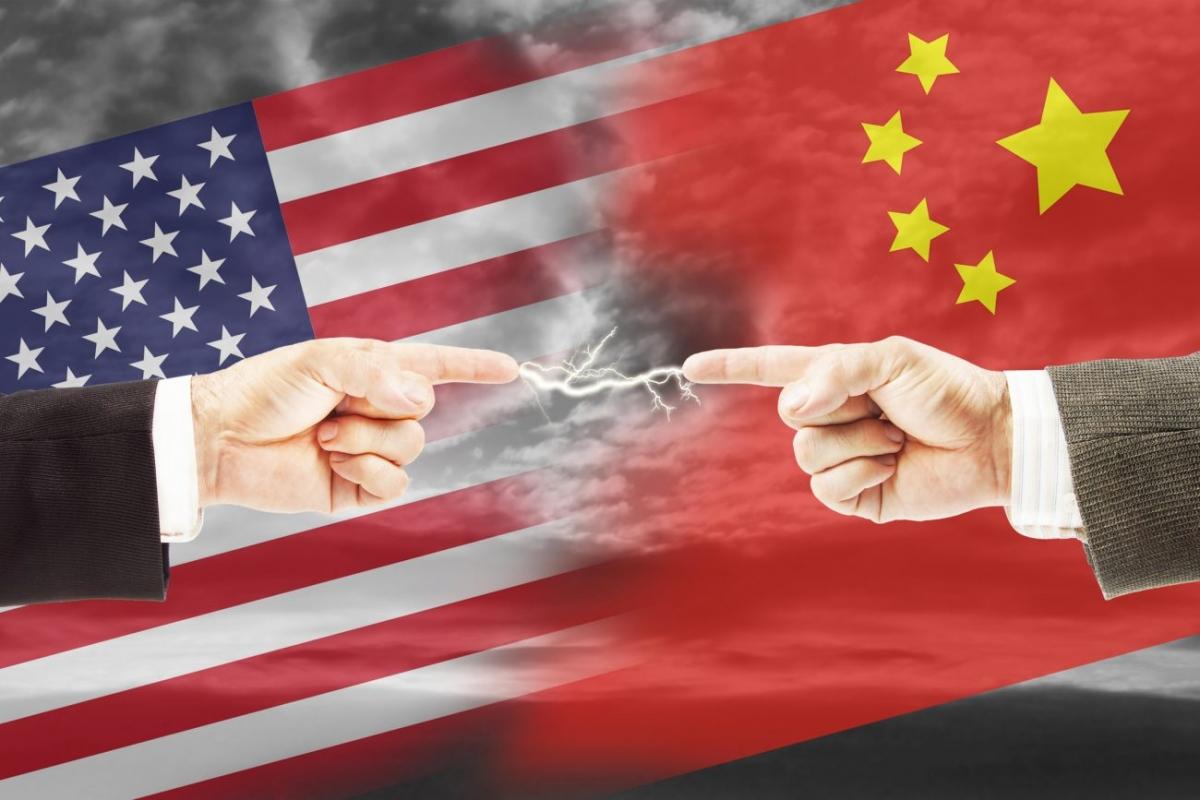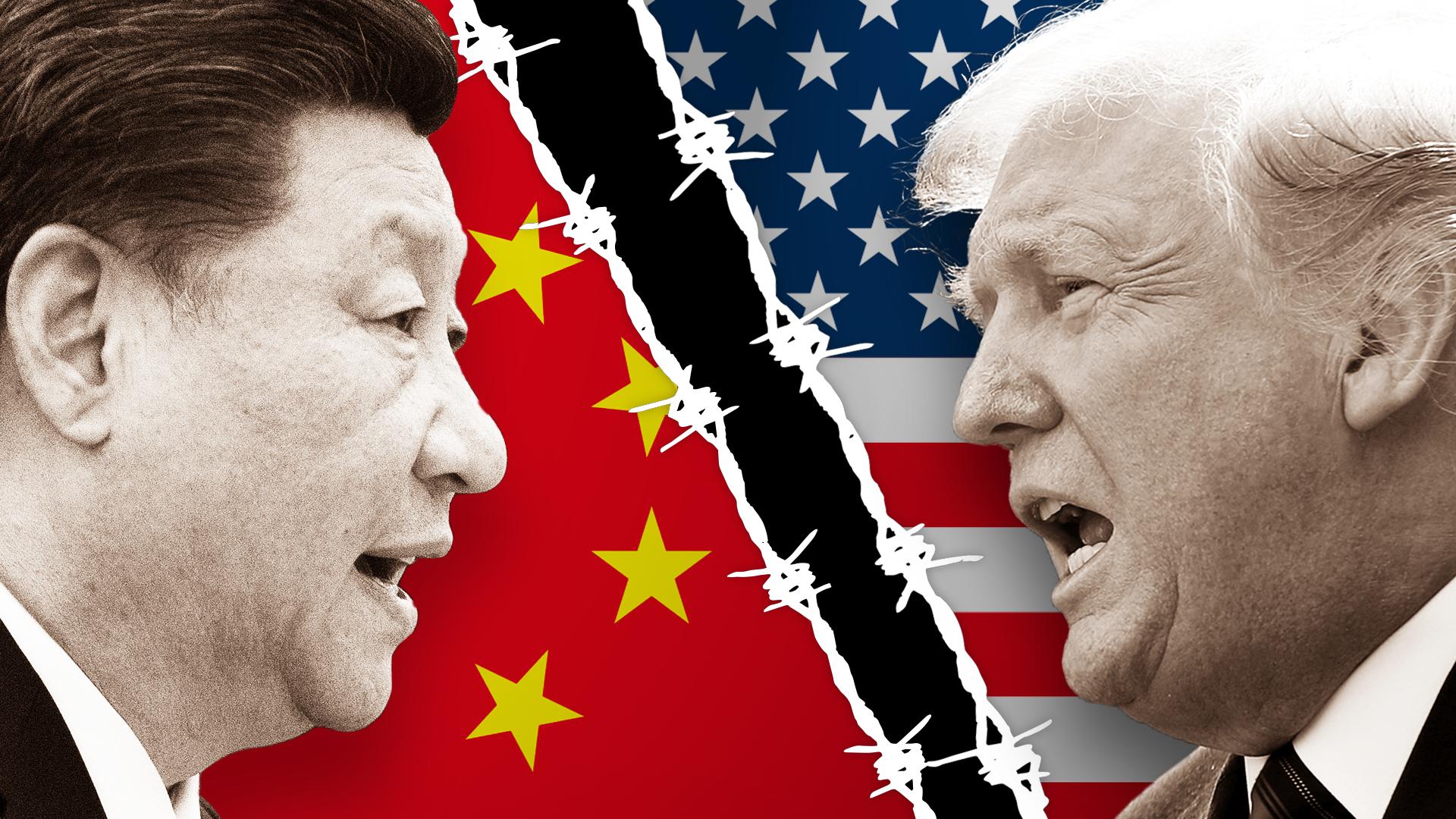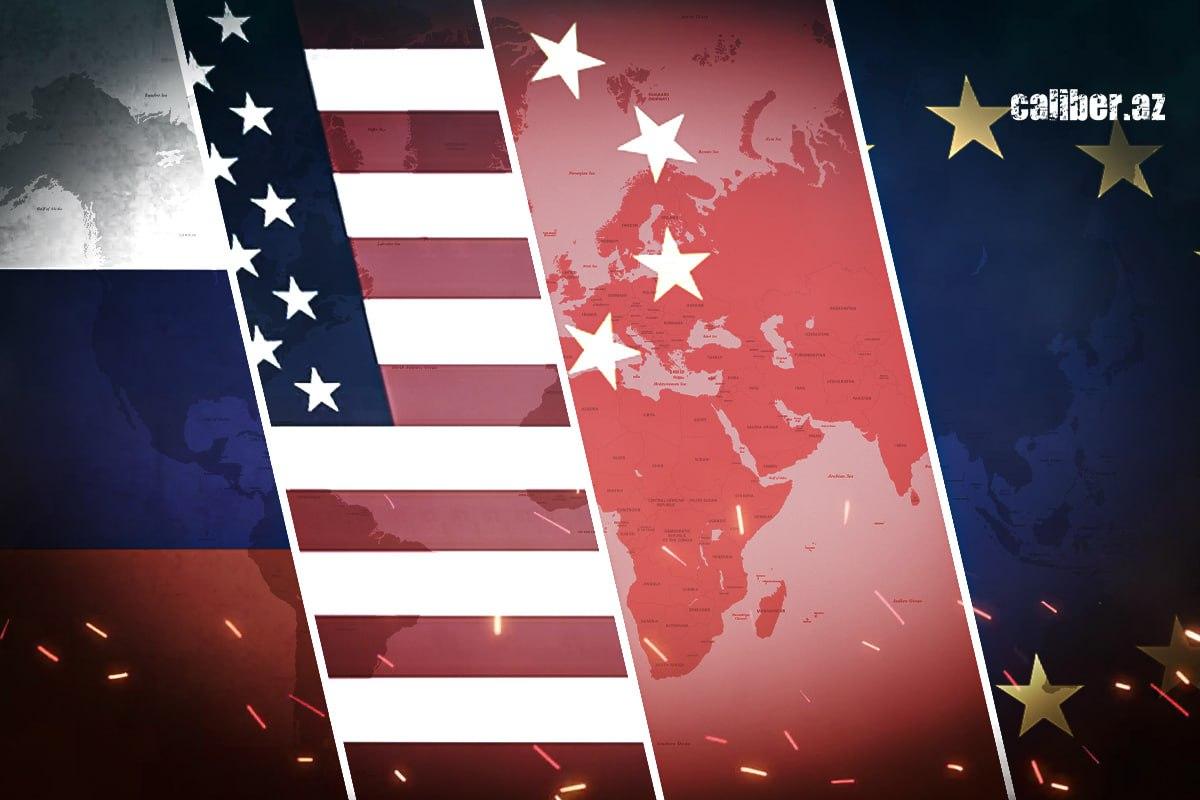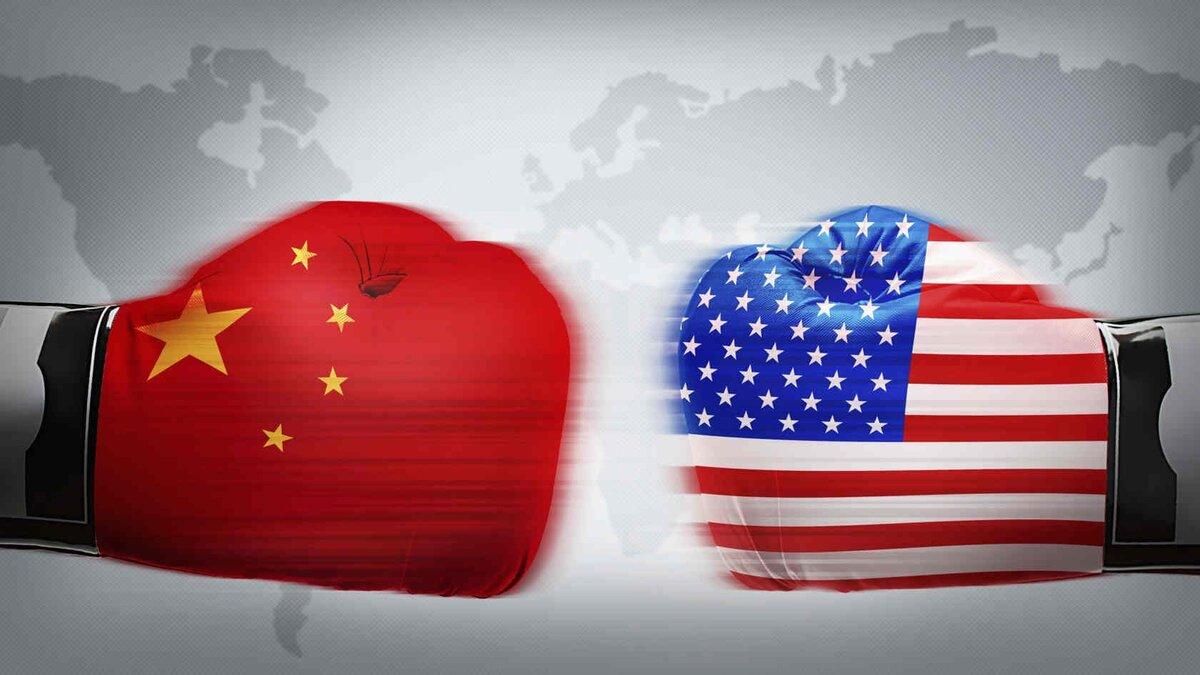China vs. USA: two approaches to competition Escalating economic and political showdown
The economic rivalry between the United States and China escalates into trade wars and open political confrontations. However, China maintains a confident stance throughout these tensions, befitting an independent and strong nation.
“Long-arm” jurisdiction
It appears that the confrontation between the two world powers is entering a new phase. On May 22, the US government imposed new tariffs on a vast array of Chinese goods. In response, China simultaneously imposed sanctions against American corporations.
The additional taxation of Chinese goods in the US has been a long-discussed topic, and discriminatory measures are periodically implemented. Undoubtedly, the main reason here is economic. The US has long been losing the competitive battle with China. While America still holds the top spot in nominal GDP, China has been ahead of the US in GDP based on purchasing power parity (PPP) since 2016. And the gap continues to widen. In 2023, China’s GDP by PPP was 20.1%, while the US was at 14.1%. The GDP growth rate by PPP in the PRC was 5.2%, compared to only 2.5% in America.
The difference in the trade balance is also huge, almost three times.
In 2023, China supplied $427 billion worth of goods to the United States, while Americans supplied only $148 billion to China. Analysts also suggest that by 2034 the Chinese economy will surpass the American one in terms of nominal GDP.
All negative forecasts about China, related to a certain slowdown in growth rates, the real estate sector crisis, and so on, are more figures of Western propaganda than serious consolation for the American elite. One thing the political and business circles of the West cannot be accused of is self-deception. Washington is well aware that it stands little chance of outcompeting China in a fair economic contest governed by the "laws of the market economy" championed by neoliberals.
The unique Chinese model combines the advantages of economic initiative and material interest with planned regulation, state support, and collectivist consciousness and responsibility. This has made both the private and public sectors in China effective. Neither the US nor the EU has been able to do anything serious over the past decade to oppose the economy of “state capitalism” under the leadership of the Chinese Communist Party.

Accordingly, certain forces in the West see only two approaches to solving the China problem. The first of these is the imposition of sanctions and additional customs duties. The second possible path will be discussed a bit later. If they cannot win by their own rules, the hegemon can always rewrite them, as Western legislators have a long reach.
High fence against economic development
Among American politicians, Donald Trump is considered the most ardent supporter of a hardline approach towards China. As President of the United States, Trump has already imposed tariffs on Chinese products worth hundreds of billions of dollars. Recently, Donald Trump has been stating again that if he returns to the White House, he will impose 60 per cent tariffs on a number of Chinese goods. And in February 2024, speaking on Fox News, Trump already said that it would be "something more."
However, the Biden administration cannot be accused of loyalty to Beijing either, and after coming to power, it retained the "Trump tariffs." In October 2022, it introduced a new ban on the export of advanced semiconductors and equipment for their production. These latest restrictions were justified on security grounds. In August 2023, Joe Biden signed an executive order banning American investments in sectors deemed "sensitive" for America. However, the policy of technological blockade against China, which China itself described as a "small yard, high fence" tactic, has inflicted some damage on Chinese companies but overall has not been successful.

Firstly, although the US is a major producer in the field of semiconductor chips, it is by no means dominant.
Secondly, China itself has found qualified personnel, technologies, and investments to begin mitigating the consequences of these sanctions.
Thirdly, US allies and partners have their own interests in trading with China, and not all of them agreed to work against these interests.
And unity did not materialize. The rapid development of the "new energy" sector in China—electric vehicles, hybrid cars, batteries, and green technologies—is causing particular concern in America. Today, every second electric vehicle produced in the world is Chinese. For example, the Chinese smart car startup Leapmotor in Jinhua increased its deliveries by 136 per cent in March 2024 compared to the previous year. Against the backdrop of the failed technological blockade, the US began to suggest that China should limit its own production growth.
In April 2024, US Treasury Secretary Janet Yellen stated that China should reduce its "excess industrial capacity." This statement was made during her visit to China, during her speech in Guangzhou. According to Yellen, "excessive" capacity in the new energy sector harms not only other countries but also China itself. During her visit to China, the US Treasury Secretary effectively threatened Beijing with measures to protect the American supply chain for electric vehicles, batteries, and so on. Yellen also opined that the US and the EU should respond to this in a "strategic and joint manner."
In response, Chinese Foreign Ministry spokesman Wang Wenbin said that the US's actions against China's new energy sector are diametrically opposed to the facts and economic laws. "The US cannot simply wave the flag of fighting climate change and ask China to take on greater responsibility on the one hand, while simultaneously waving the stick of protectionism and preventing Chinese eco-friendly products from benefiting the world on the other," Wang Wenbin emphasized.
One of the key arguments justifying the American sanctions is the cheap state financing provided by China to its manufacturers. The American side also accuses China of dumping, technology theft, and more. However, China, in turn, accuses the American government of tax subsidies for its "new energy" sector amounting to hundreds of billions of dollars. Beijing hopes that the EU will not succumb to American pressure to the detriment of the significant benefits brought by cooperation with China. Chinese experts believe that the development of China-EU relations has great prospects. European companies can interact with Chinese partners directly, ignoring their governments. Moreover, cooperation with China allows many countries to develop and helps the global economy emerge from the still ongoing global recession.

The funniest and saddest part of this whole story is that the war against electric vehicles from China is being waged against the backdrop of the much-hyped recent "progressive agenda" of the "green" economy. The Chinese side refers to the fact that its "new energy" development is fully in line with the decisions of the 28th UN Conference (COP28) on climate change. The Americans also accuse China of allegedly restricting their manufacturers in local markets. The Chinese side reports that it is indeed considering raising tariffs on imported cars. However, this measure is primarily being taken for environmental reasons concerning internal combustion engine vehicles. Additionally, the proposed tariff increase will not exceed 25%, in accordance with WTO free trade agreements. Visits by German Chancellor Olaf Scholz and US Secretary of State Blinken to Beijing and negotiations between Chinese State Council Chairman Xi Jinping, French President Macron, and European Commission President Ursula von der Leyen during the Chinese leader's European tour have also taken place. Economic issues were undoubtedly discussed during these meetings. However, judging by the situation, the Chinese leader did not succumb to the collective pressure from the West. And the US is consistently tightening measures against China.
Biden's "Hundred"
On May 1, the US imposed sanctions on almost 300 companies from China, the UAE, and other countries, accusing them of "supporting" Russia's military efforts in Ukraine. US Treasury Secretary Yellen practically threatened this during her speech in Beijing on April 8. During May, another 37 companies were added to this list.
And on May 22, the US announced a new increase in import tariffs on a range of goods from China. Some of these tariffs will take effect from August 1 this year. The official rationale is "job protection" in the United States. It was announced that the list includes goods on which China aims to "dominate" or sectors in which the United States has recently made significant investments. The Americans raised customs duties on Chinese electric vehicles by 100%, up from the previous 25%, and on semiconductor chips by 50%. Thus, the Biden administration, with its automobile "hundred," even surpassed Trump, who promised only 60%. Will this benefit the elderly president during the new election campaign? Biden's 100% is four times higher than the Chinese themselves planned, which was a 25% tariff increase on imported cars in accordance with WTO rules.
However, electric vehicles themselves do not occupy the first place in the structure of Chinese exports to the US. Therefore, some experts consider this decision more political. Currently, the leading item of Chinese supplies to America is smartphones, with personal computers in second place. In third place are lithium-ion batteries, which amounted to $13.2 billion in 2023. Non-automotive lithium-ion batteries will also be subject to a 25% tariff from January 1, 2026. The list of goods subject to tariff increases, besides cars, includes steel and aluminium, critical minerals, solar panels, and cranes. A total of 387 categories of goods. There is even a proposed 50% tariff on medical syringes and a 25% duty on masks and gloves. However, for its own economy, the US leaves a loophole—interested companies can apply for exemptions for products they need from the list.
The Chinese Embassy in Washington immediately stated that the decision to raise tariffs would harm both bilateral relations and the American economy itself, including a significant increase in prices for ordinary consumers.
Almost simultaneously, the People's Republic of China prepared and adopted its own countermeasures.
Recent Chinese sanctions
On May 20, divisions of Boeing Defense, Space and Security, General Atomics Aeronautical Systems, and General Dynamics Land Systems came under restrictions imposed by the Ministry of Commerce of the People's Republic of China (PRC). These companies are now prohibited from engaging in import and export activities related to China and from making investments in the PRC. Their executives are banned from entering the country, and any existing residence and work permits have been revoked. Additionally, Boeing was fined an amount double the value of its contract for supplying arms to Taiwan.
As of May 22, the sanctions list of "unreliable organizations" included 12 American military companies, some of which had already been sanctioned earlier. These include subsidiaries of major US defence contractors such as Lockheed Martin, Raytheon, General Dynamics, Iron Mountain Solutions, and Applied Technologies Group. The sanctions include freezing the assets of these corporations in China and banning their senior executives from entering the country. The "blacklist" includes six high-ranking officials from Northrop Grumman Corp., including CEO Kathy Warden, and four representatives from General Dynamics, including Vice President Firat Gezen.
In a statement regarding these actions, China's Ministry of Foreign Affairs stated that the US "indiscriminately imposed illegal unilateral sanctions against several Chinese enterprises on the basis of so-called factors related to Russia." The Chinese Foreign Ministry emphasized that China maintains an "objective and impartial position on the Ukrainian crisis." China has repeatedly stated that it does not supply weapons to the Russian military. Nonetheless, the United States continues to attempt to intimidate and unilaterally coerce China. Regarding arms sales to Taiwan, Beijing views this as interference in China's internal affairs, causing "serious damage to China's sovereignty and territorial integrity."
Western sources have tried to downplay the significance of these sanctions, calling them "symbolic." They claim that the companies affected by the ban do not conduct business in China. However, publicly available information suggests otherwise. For example, General Dynamics manages a group of companies providing Gulfstream services and jet aviation in China, while also participating in the production of Abrams tanks, which are supplied to Taiwan's military. The importance of Chinese manufacturers and supply chains to American companies is also highlighted by the fact that Lockheed Martin Corporation and Raytheon Missiles & Defense were sanctioned in February 2023. Despite this, they continued to procure products from China through Caprags Corporation, an American company. Consequently, the Ministry of Commerce of the PRC issued a warning to Caprags in the May 20, 2024 directive, advising them to cease such activities to avoid being sanctioned themselves.
Mountain and wind
It is also no coincidence that the sanctions against American arms companies were imposed simultaneously with the inaugural speech of Taiwan's new "president" Lai Ching-te, who was accused by mainland China of "independence rhetoric." Chen Binhua, a spokesperson for the Taiwan Affairs Office of the State Council of the PRC, stated that during the inauguration, leaders of the Taiwan region stubbornly adhered to the "Taiwan independence" stance, promoting separatism and provoking confrontation between the two sides of the strait. They also "relied on force and used external forces in pursuit of independence."
We discussed the first way how corporate capital in America is used to combat its main economic competitor—sanctions. But there is also a second way—war. Provoking a military crisis around Taiwan, potentially triggered by the declaration of independence on the island, may appear to some hawkish figures in Washington as a radical solution to the problem. Regarding the US Secretary of State congratulating the head of the Taiwan administration on assuming office, the Chinese Ministry of Foreign Affairs also stated: "Blinken sent the wrong signal to Taiwanese separatist forces" and urged Washington to "immediately correct its mistakes."

The PRC does not limit itself to verbal demarches but also demonstrates a readiness to defend China's sovereignty and integrity in action. Just two days after the "inauguration" in Taiwan, the Eastern Theater Command of the People's Liberation Army (PLA) launched the "Joint Sword-24A" exercises. The two-day exercises involved J-16 and J-20 fighter jets, Type 052D destroyers, Type 071 amphibious transport dock, Dongfeng-15B missiles, and PHL-03 multiple launch rocket systems. The J-16 is a low-end 5th-generation fighter-bomber, and the J-20 is the latest heavy multi-role 5th-generation fighter. The Type 052D ships are the latest multi-role destroyers built in recent years, equipped with guided missiles. Chinese Foreign Ministry spokesman Wang Wenbin directly stated that "the exercises are a signal to the separatist forces seeking Taiwan independence and a warning to external forces."
It seems that the PLA exercises around Taiwan impressed the American side. At least, the deputy head of the US Indo-Pacific Command, Stephen Sklenka, stated: "It is concerning but I also believe in my heart of hearts that conflict between our two nations is not inevitable and it’s not a foregone conclusion."
Undoubtedly, any confrontation can have different outcomes and various resolutions. But how the contradictions between the US and China will be resolved depends primarily on the position of the West, and especially Washington. China, however, is not seeking to fight anyone or threaten anyone, revealing its potential primarily in the field of economic achievements. China traditionally demonstrates a wise and restrained policy, not aggressive but simultaneously firm as a rock.
There is also a cautious optimism in the unfolding struggle, given that not all forces in the EU are interested in stoking enmity. Primarily because Europeans themselves have significant benefits from economic cooperation with the PRC. However, recently, US Treasury Secretary Janet Yellen reiterated at a meeting of finance ministers in Italy that she insists G7 allies must jointly oppose China's industrial policy.
China's strength lies not only in its growing economic power but also in the fact that this development aligns with the interests of many countries in the global South and other regions of the world, tired of unilateral dictates, double standards, and biased attitudes. Therefore, today, the People's Republic of China is one of the main locomotives, or rather, high-speed expresses, moving toward a new, more just world. The Chinese proverb wisely says: "No matter how the wind howls. The mountain cannot bow to it."
The views and opinions expressed by guest columnists in their op-eds may differ from and do not necessarily reflect the views of the editorial staff.








